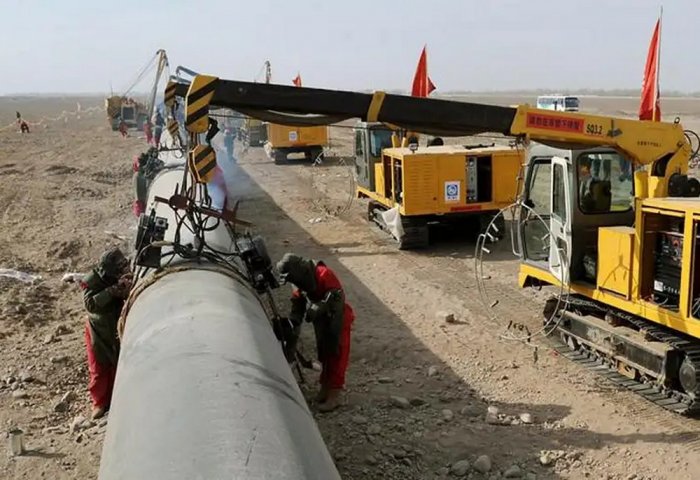
Chairman of the National Assembly of Tajikistan, Mayor of Dushanbe Rustam Emomali on Tuesday in Beijing discussed with the Vice Premier of the State Council of China He Lifeng an acceleration of the Line “D” construction of the Turkmenistan-China gas pipeline, according to the National News Agency of Tajikistan Khovar.
Rustam Emomali made an official visit to China on August 22-23.
Rustami Emomali and He Lifeng deemed it necessary to attract modern Chinese investments and technologies in the development of the energy sector in Tajikistan, accelerate the construction of line "D" of the gas pipeline Turkmenistan-China, according to the report.
China currently imports Central Asian gas via three pipelines passing along the Turkmenistan-Uzbekistan-Kazakhstan-China route. The pipeline system is capable of transporting 55 billion cubic meters (bcm) of gas a year, with majority of the supplies provided by Turkmenistan and the rest provided by Kazakhstan and Uzbekistan.
The agreement on the construction of the fourth branch of the gas pipeline system Line “D” from Turkmenistan to China was agreed in February 2022.The Line “D”, which will pass along the Turkmenistan-Uzbekistan-Tajikistan-Kyrgyzstan-China route, is intended to supply China with an additional 25 bcm of gas per year as part of the second stage of the development of the Galkynysh field, the world's second-largest gas field located in Turkmenistan.
